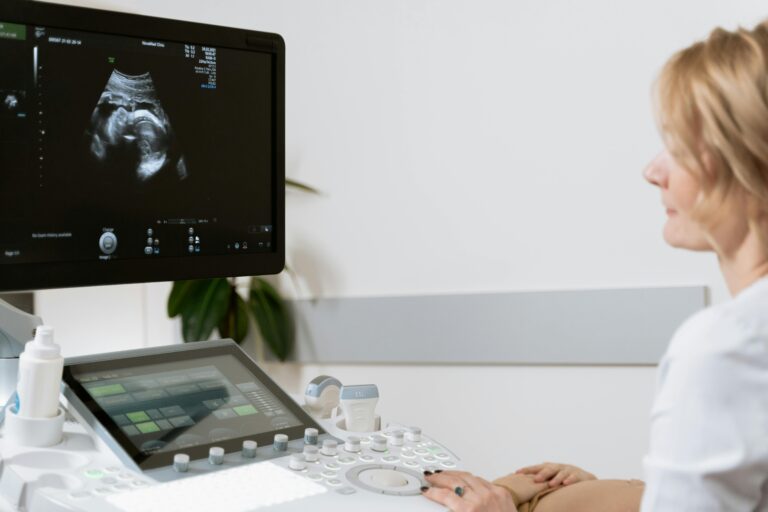The crucial checkup and beating renal cell carcinoma

http://www.imaramedical.com https://www.linkedin.com https://www.facebook.com/pages/Imara-Medical Twitter: @imaramedical
A young lady came to see me for a checkup. She had been my patient for about a year. She had one child and was considering having another. As her physician I was not too keen as she had a clot in her leg during the previous pregnancy. She had uterine fibroids and a low blood count (anemia) due to heavy periods. I suggested that she should do a comprehensive physical and then we could discuss it further. The only abnormality on examination was some mild tenderness in the upper right abdomen. She was sent for an ultrasound and asked to do her pap smear and mammogram. And then it began. Five days later I was called by the radiologist who had performed the ultrasound. My patient had a large tumor (growth) originating from her right kidney. A CT abdomen scan confirmed this. The urologist I asked to see her agreed that had she not done a checkup and the ultrasound, the mass would have gone unnoticed. She had no signs of any spread of the cancer. Her entire right kidney was removed approximately three weeks after I first saw her. She did very well but was mildly anemic. Iron was prescribed and her blood count steadily improved.
This young lady’s story has several learning points. The importance of getting an annual physical is the first. This was the crucial first step that allowed her story to have a happy outcome. The importance of the correct investigation to supplement physical findings is the second. The abdominal tenderness noted on examination was very mild and might easily have been ignored. This brings me to point number three. Complying with a doctor’s request for investigations. Countless times patients do not follow through with the suggestion of their doctors, to their detriment. Indeed, this young lady might have ignored or delayed the test. She certainly felt well. The fourth point I would like to highlight is the specialist’s role in evaluating a patient before surgery to decide if there is any spread of the cancer. This important step guides the recommendation for what comes next. Fortunately, no sign of spread was found. The surgeon and anaesthetic team must then take that patient safely through the rigours of the actual procedure. The right kidney and the entire tumor was removed.
Stay tuned for part 2 next week to hear more on this patient’s progress.
Most people may not have heard of renal cell carcinoma. It is the commonest tumour of the kidney. It may be suspected because of blood in the urine, flank pain, or abdominal mass. Symptoms such as weight loss and poor appetite are late signs, more commonly, seen when the cancer has spread. My patient, though grateful for the early diagnosis, now faces life with one kidney. Importantly, persons who have one kidney, for whatever reason, must be extremely careful to avoid anything that can damage it. One fully functional kidney can detoxify the body effectively, however that kidney must be protected. That means avoiding, completely, medications that might reduce kidney function. These include certain painkillers, cholesterol lowering drugs, some antimicrobial and antifungal medications and antacids. It may also mean adjusting the dose of medications for other chronic medical problems such as hypertension and diabetes. Some chronic conditions, notably diabetes and hypertension, in and of themselves contribute to declining kidney function, particularly if they are not well controlled. The advice of the doctor is critical. Blood tests are necessary to evaluate the degree of impairment of kidney function that exists. This is through the calculation of the glomerular filtration rate or GFR.
The kidneys play a significant role in metabolism of protein that we eat. This means that persons with one kidney or reduced kidney function for any reason must avoid a diet that is high in protein. It also means close monitoring for any form of blockage to the drainage system of the remaining solitary kidney. If kidney function declines significantly patients will notice a change in the volume and frequency of urine they are able to pass. Many patients with end stage renal disease pass no urine at all. At that stage they are dependent on some form of dialysis to clean the blood. This is uncomfortable and expensive.
Renal transplant is an option if the expertise and a suitable matched donor is available. This option requires the use of strong drugs to prevent rejection of the transplanted kidney. These same drugs place the transplant recipient at serious risk of infections, necessitating significant lifestyle modification to minimize this possibility.
My patient was given appropriate dietary advice and advised to avoid any trauma to her left side where her remaining kidney resides. Please read on next week as her story continues.
Dr. Simone French is a consultant emergency physician, and the medical director at the Emergency Medicine Division of the UHWI. She is the physician owner of Imara Medical Centre where she practices general and urgent care medicine.






